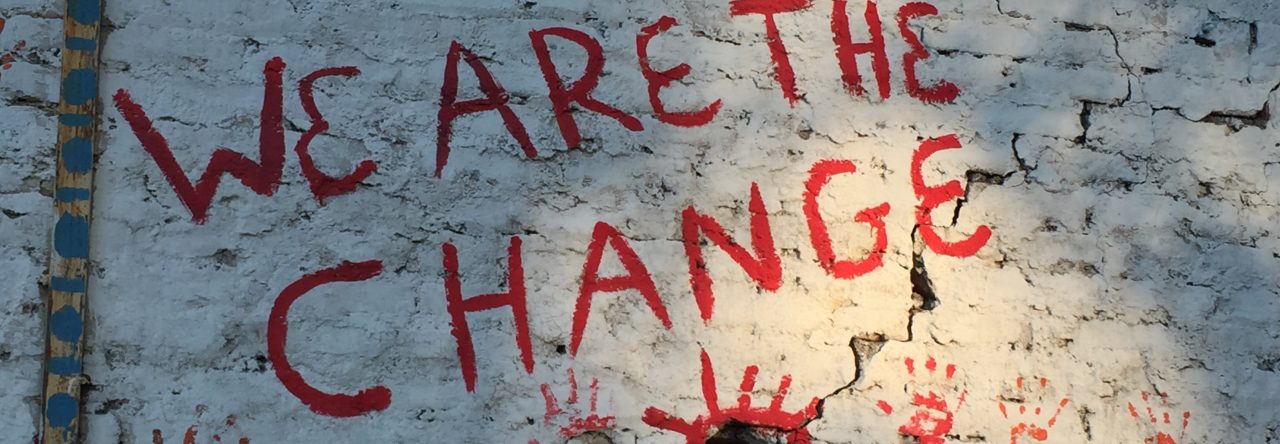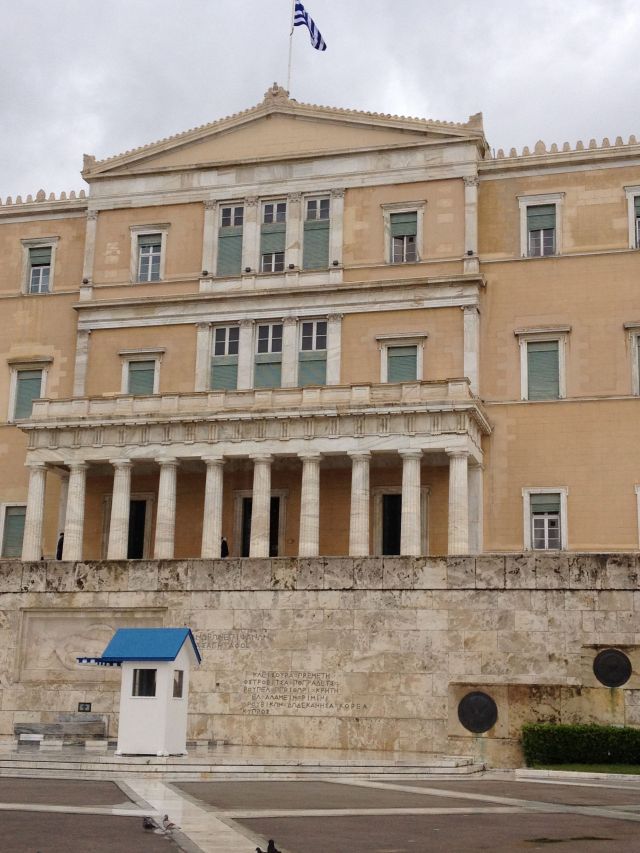I’ve worked with refugees and asylum seekers since 1991. I can’t even tell you how many I have had the privilege to represent, yet I believe that I have only encountered two cases of fraud in more than 20 years. I have never encountered even a single client with any links to terrorism. The refugees and asylum seekers who I have met have been fleeing for their lives – sometimes, in fact, from terrorists.
The Executive Order “Protecting the Nation from Foreign Terrorist Entry into the United States” signed on January 27, 2017 not only overreaches executive branch powers (under the plenary power doctrine, immigration policy is shared between the legislative and executive) but aspects of the order are both unconstitutional and violate our international legal obligations under the Refugee Convention (which we ratified in 1980). This at a time when there are more forcibly displaced persons (65+ million) than ever before in human history.
Here are some of the reasons why this Executive Order is bad policy that should not be enforced:
- Suspension of U.S. Refugee Admissions Programs (USRAP).
- The order suspends all refugee admissions for 120 days. Why? Even after the terrorist attacks of 9/11, refugee admissions were suspended for less than 3 months. Refugees are perhaps the most thoroughly vetted individuals who enter the U.S. Refugee processing often takes up to 36 months and includes background checks, biometrics, medical screenings, and interviews with several federal agencies. I’ve met many people stuck in limbo in refugee camps, waiting to be cleared to join immediate family members in the U.S. The refugees impacted by this aspect of the order includes many children – the UN High Commissioner for Refugees estimates that 51% of refugees are under the age of 18.
- Under the order, exceptions can be made on a case-by-case basis for national interest, if the person does not pose a risk, and the person is a religious minority facing religious persecution OR diplomats OR if the person is already in transit and denying admission would cause a hardship. It does not appear that clear instructions regarding implementation were conveyed to the Border & Customs Protection people who actually had to enforce the order this weekend, leading to chaos and lawsuits.
- The order reduces the number of refugee admissions by more than half, to 50,000. The refugee admission number is set each year by the President, in consultation with Congress. Historically, the number of admissions has fluctuated in response to the human rights crises in the world that produce refugee emergencies. Frankly, the U.S had dropped pretty low in our history in refugee resettlement due to the overall lower number of refugees worldwide prior to the Syrian conflict. President Obama does not deserve accolades for many aspects of his immigration policy regarding refugees, particularly in regard to family detention and the “rocket docket” for Central American women and children fleeing violence. But last year he finally did authorize an increase in the number of refugees the U.S would accept in response to the worldwide refugee crisis. The goal this fiscal year was to admit 110,000 refugees. The government’s fiscal year began on October 1, so we have already admitted 29.895 as of January 20, 2017. Under this new executive order, we will admit only about 20,000 additional refugees before the end of the fiscal year on September 30. That means that 60,000 refugees who have already been vetted will remain in vulnerable situations.
- Once resumed, the U.S. will prioritize the religious persecution claims of minority religious groups. Purportedly, this is to prioritize the claims of persecution on account of Christian minorities but the fact is that Muslims are also a persecuted minority in countries such as India. What does this mean for them?
- The order suspending USRAP for 120 days also directs Department of Homeland Security to determine how state and local jurisdictions can have greater involvement in determining placement resettlement in their district. This aspect of the order has not received a lot of media coverage yet, but it would allow states and cities unprecedented authority to say that they will not resettle any Muslim refugees. Bills have already been introduced in states such as North Dakota and South Dakota to ban all resettlement unless approved by the state legislatures.
- Ban on Syrian refugees. The order halts the processing and admission of all Syrian refugees. Indefinitely. Syria is one of the worst human rights crises on the planet. Over the past few years, millions of people have fled from both the forces of President Bashar al-Assad (supported by Russian airstrikes) and ISIS. It is worth noting that the U.S. finally stepped up last year and accepted 10,000 refugees – but that number is far, far less than most Western countries. To date, the majority of refugees resettled from Syria to the U.S. have been women and children.
- And then there’s the ban on entry of nationals of Muslim-Majority countries.
- Both non-immigrants (tourist, student, etc.) and immigrants (including legal permanent residents – although Priebus later said that, actually we didn’t mean THEM and a “waiver” process was subsequently added) from seven countries (some friends, some foe) – Iraq, Iran, Libya, Somalia, Sudan, Syria, and Yemen – are banned from entry for at least 90 days. The order also notes that other countries and immigration benefits may be added to the banned list later. Courts have already temporarily blocked the implementation of part of this order, the concern being the First Amendment Establishment Clause (which prohibits the government from preferring or disfavoring a religion) and the Fourteenth Amendment Equal Protection clause.
- But part of the order also calls for the exclusion of individuals who “would place violent ideologies over American law” or “who engage in acts of bigotry or hatred (including ‘honor’ killings, other forms of violence against women, or the persecution of those who practice religions different for their own..” That is incredibly vague and potentially discriminatory. But the truth is that there has been enhanced screening for everyone coming from countries with high levels of terrorism since 9/11. We’re already doing the highest level of vetting that can be done. I can’t help but think that you and me and the American public are being played here – to the great loss of everyone from these 7 countries.
- In-Person interviews for most nonimmigrant visas. The order suspends the Visa Interview Waiver Program (VIWP), which was primarily used by people who had been vetted already, were considered a low-security risk and were on renewable employment-based visas. The requirement for in-person interviews for nonimmigrant visa applications will create huge backlogs at embassies and consulates and slow down the process for anyone applying for a visa (including family members of legal immigrants, asylees and refugees). Many of our asylum clients come to the U.S. on visitor or student visas and this processing backlog will thus prevent people like them from escaping persecution in their countries and leave them in vulnerable and insecure situations.
- Screening of all for Immigration benefits. While screening standards are already in place for identifying fraud etc., agencies are now directed to create a process to evaluate the person’s “likelihood of becoming a positively contributing member of society” and “ability to make contributions to the national interest”. These are entirely new and subjective standards so it is not clear how anyone could even implement them. More importantly, they are NOT statutory requirements for any immigration benefit (except a national interest visa). This is policy by fiat, going beyond Congressional authority. And did I mention the backlog we already have for processing any immigration matter?
- Biometric Entry-Exit. The order directs agencies to complete the implementation of the biometric entry-exit system that Congress mandated in 1996. The Department of Homeland Security implemented biometric entry in 2006 but the exit system has proved logistically challenging. Congress appropriated up to $1 billion in the FY2016 budget for implementing the biometric exit program but the Department of Homeland Security has noted that a comprehensive entry-exit system at all ports of entry will require additional resources.





You must be logged in to post a comment.